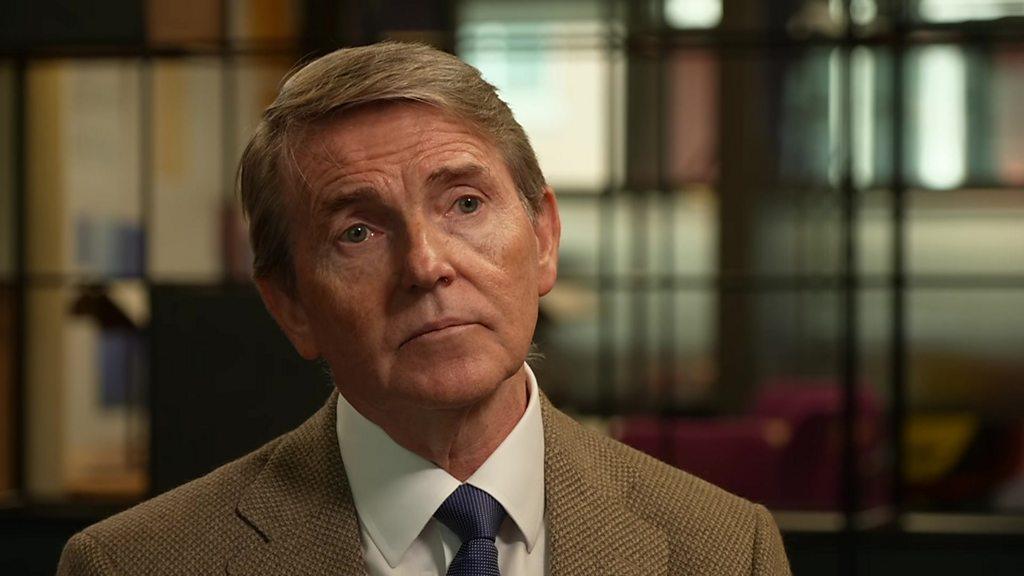Gary Lineker criticised over Rwanda comments in impartiality row
- Published
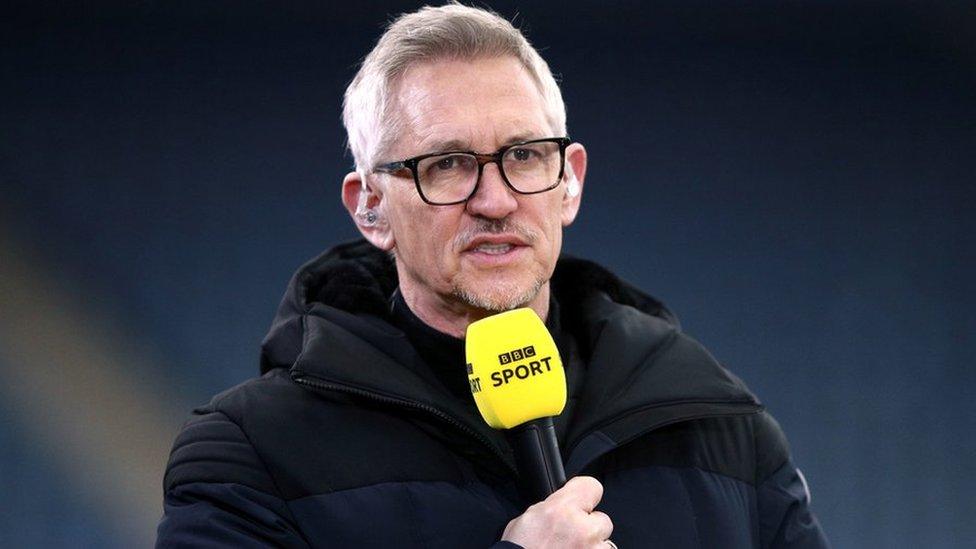
New questions are being asked of new BBC impartiality rules
Gary Lineker has faced fresh criticism after backing a campaign calling for the scrapping of the government's plan to send asylum seekers to Rwanda.
He and other celebrities signed an open letter calling for politicians to come up with a "fair new plan for refugees".
Defence Secretary Grant Shapps, external questioned whether the Match of the Day host should express political views.
The BBC said Lineker is "free to contribute to projects for third parties, as long as these do not conflict with his BBC commitments".
It said such contributions must also "not breach guidelines on conflicts of interest; nor bring the BBC into disrepute".
The BBC also noted Lineker "regularly" contributes to or comments on such projects, and added his latest comments were made in the letter and not on social media.
The letter has been published on the website of campaign coalition Together With Refugees, external in the week MPs will vote on the Safety of Rwanda Bill, a new attempt by Prime Minister Rishi Sunak to get the scheme up and running after it was rejected by the Supreme Court last month.
Some of those MPs have accused Lineker, the highest of the BBC's publicly declared earners, of breaching BBC guidelines which limit him from intervening in party politics.
Mr Shapps said: "I think he should stop meddling in these other areas," he said. "It's all very well signing letters... but I would suggest just focusing on football would be a better solution for him."
After the letter was released, Conservative MP Jonathan Gullis said, external it was "yet another breach of the BBC's impartiality rules by Gary Lineker".
However, Lineker then responded: , external"Jonathan hasn't read the new guidelines…. or, should I say, had someone read them to him?"
Referring to social media impartiality rules, the BBC said: "While the guidance does allow people to talk about issues that matter to them, it is also clear that individuals should be civil and not call into question anyone's character. We discuss issues that arise with presenters as necessary."
The open letter, co-ordinated by Together With Refugees, says "a new system that reflects the will of the British people" is needed.
It states: "Our government is still trying to banish people fleeing persecution to Rwanda despite the highest court in the land ruling the scheme unlawful."
The letter goes on to brand the UK's refugee system "ever-more uncaring, chaotic and costly".
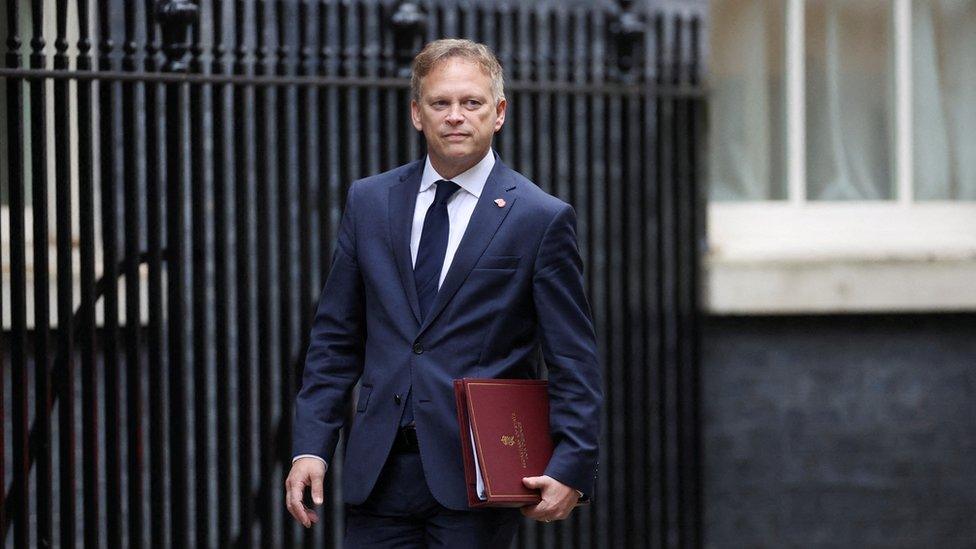
Defence Secretary Grant Shapps fundamentally disagrees with Lineker
Other signatories include actors Brian Cox and David Morrissey, comedian Suzi Ruffell, TV chef Big Zuu and women's rights campaigner Helen Pankhurst.
Lineker was among a handful of the signatories who supplied separate quotes for the organisation's press release in which he stated: "We need a new system that reflects the will of the British people who have opened their homes, donated and volunteered in their local communities.
"That's why I'm backing this new campaign - because fair really can begin here."
The Conservatives' deputy chairman Lee Anderson told the Daily Mail:, external "For once in his life, Gary's absolutely right - we do need a system that reflects the will of the British people. What the people want is to stop the boats and to tell overpaid crisp salesmen to put a sock in it."
Previously, the BBC had stated that Lineker's high profile came with "additional responsibility".
The BBC has had in place since 2020 social media guidelines for staff working in news and current affairs, to protect its mission for impartiality.
Earlier this year it revised how those regulations should apply to other staff and freelancers.
It came after a backlash over comments Lineker made about Suella Braverman, then home secretary, in March - which was followed by several high-profile BBC Sport presenters, commentators and pundits withdrawing their services in support of Lineker's position that the staff guidelines did not apply to him.
After a review, the BBC named a list of people, including Lineker, that it was defining as "flagship presenters".
They are presenters of flagship programmes outside news and current affairs, who have "a particular responsibility to respect the BBC's impartiality, because of their profile on the BBC".
While the BBC's social media guidance was predominantly for those in News and Current Affairs, it also covered others across the BBC. The guidance was updated in September and also required civility from anyone connected to the BBC on social media.
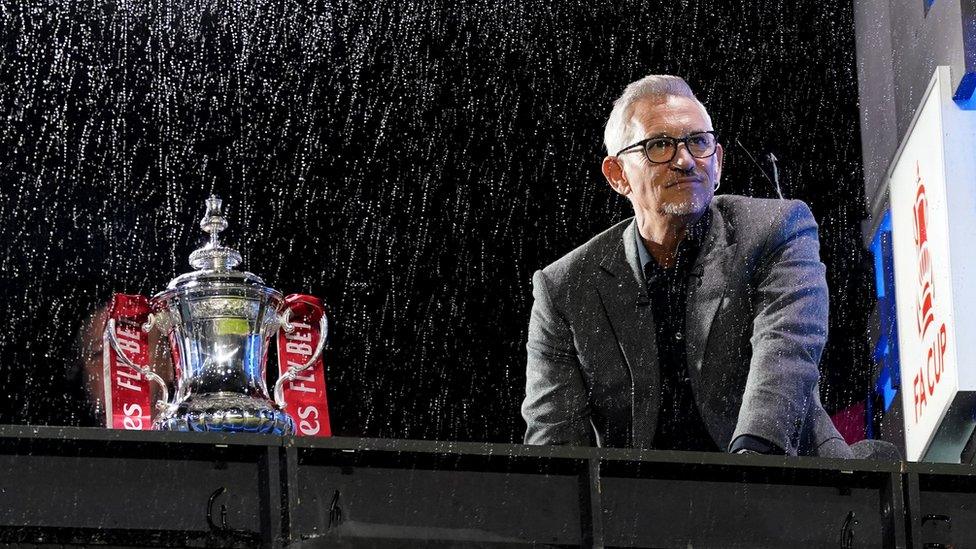
Lineker supported the new BBC social media guidelines
Now, as a flagship presenter, the rules state Lineker has more freedom to "express opinions about the issues that matter to [him]" as long as he stops short of what the BBC perceives as political campaigning.
The new guidance also recognises the importance of freedom of expression, but says that while a programme is on air, and for a two-week window before and after the series, presenters on flagship shows must not endorse or attack a political party.
They must also not criticise the character of individual politicians in the UK, or comment on any issue of political debate during an election period (which the UK is not currently in), or take up an official role for a campaigning group.
Following the publication of the new guidance in September, Lineker responded on X, external by saying the new rules were "all very sensible".
Related topics
- Published28 September 2023
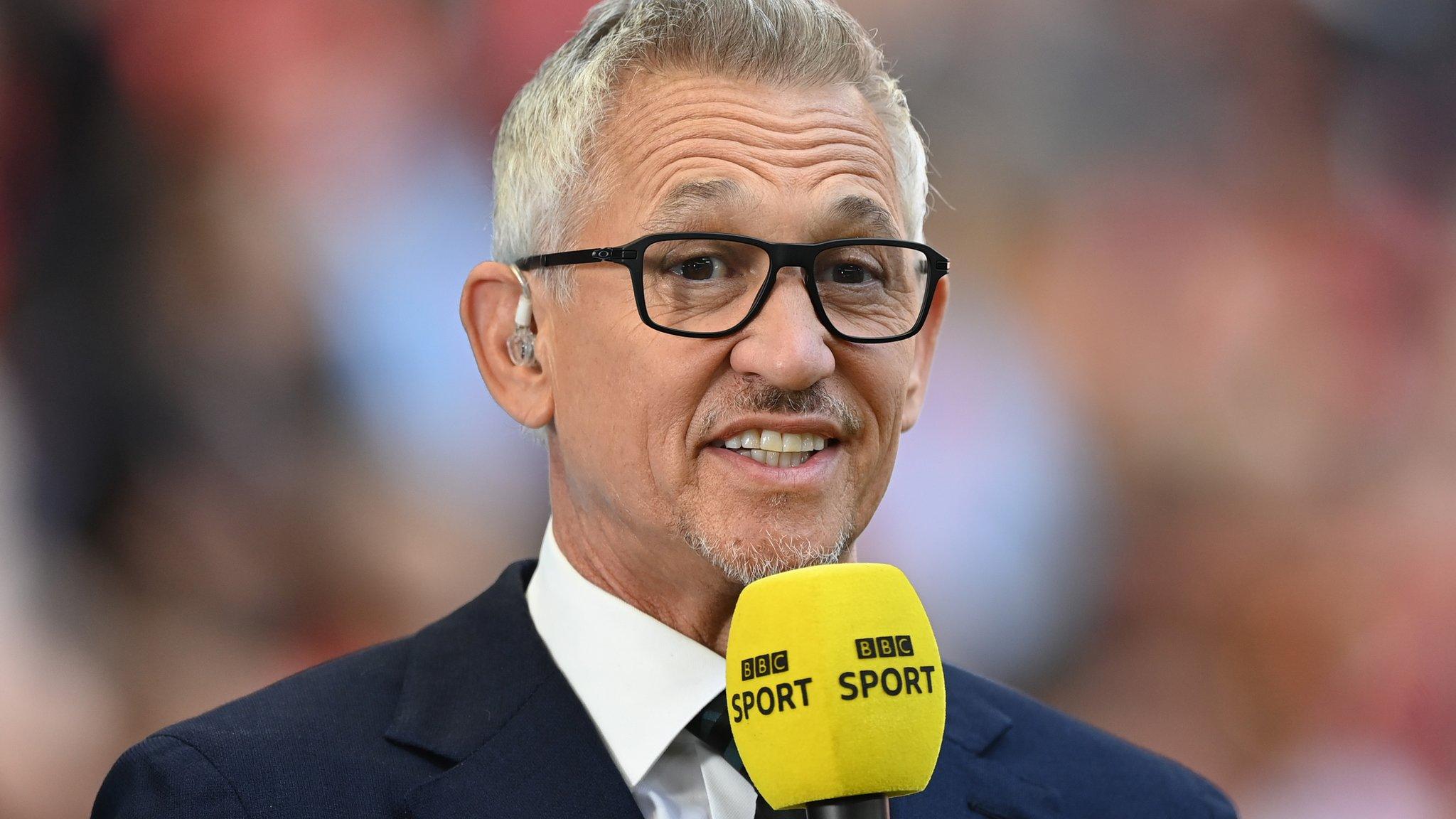
- Published28 September 2023
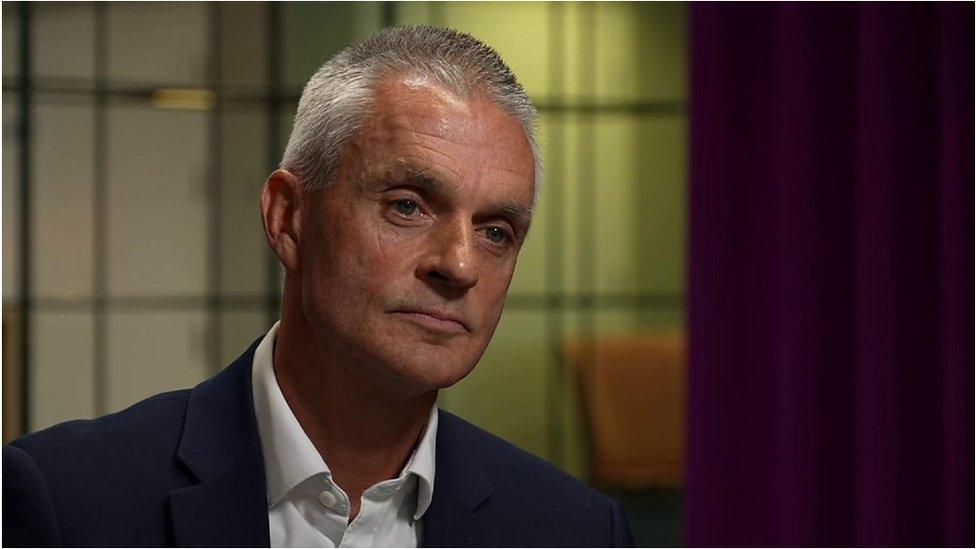
- Published28 September 2023
